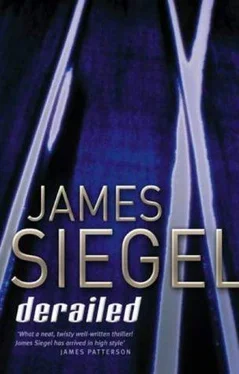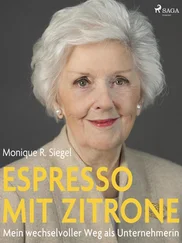It was constantly being added to. After each clear-out there’d be one or two more donations.
I stared at these crude instruments of death until the silence at my presence there grew intolerable, or until it was time for class.
Whichever came first.
The writer had kept it up with monotonous and painful regularity.
Every class I found another installment sitting there on my desk.
My own story slowly being fed back to me, chapter by painful chapter. It was a torturously slow indictment of Charles Schine. I was convinced that torture was exactly what the writer had in mind.
There were other things, too. Another note appeared at the end of chapter 20.
“Time we got together, don’t you think?”
Written in brown ink, except it wasn’t brown ink. It was written in blood. It was meant to scare me.
And I thought, Yes, it is time we got together. Even if I felt my palms grow sweaty and my collar tighten like a noose.
The writer wasn’t in my classroom. I knew that.
The delivery boy was.
A few classes after I received the last note, I dismissed the class and someone stayed behind.
When I looked up, he was sitting there and smiling at me.
Malik El Mahid. His Muslim name.
Twenty-five or so. Black, squat, and tattooed.
“Yes?” I said, even though I knew what was coming now.
“Like the story so far?” he said, still smiling. Repeating the first words the writer had scrawled to me.
“You,” I said. “You’ve been leaving it for me.”
“Thas right, dawg.”
“Who?”
“Who what? ”
“Who’s giving the chapters to you?”
“You sayin’ I ain’t the writer?”
“Yes. I’m saying you didn’t write it.”
“Fuckin’ right. I didn’t read none of it either.”
“Who?”
“You know who, dawg.”
Yes.
“He wants to see you now, ’kay?”
He wants to see you now.
“All right,” I said as calmly as I could.
But as I gathered the papers on my desk, I noticed my hand was trembling. The papers were clearly fluttering right there in full view of Malik, and even though I willed my hand to stop shaking, I couldn’t get it to listen.
“Next week,” Malik said. “All right?”
I said yes. Next week was fine.
But I have to get back to the story now.
I have to explain what happened.
FORTY-TWO
When I brought the gun out from under the bed, the world collapsed. It ended.
There was a flash of light, a blast of heat, and then the earth imploded and went black.
Then I woke up.
I opened my eyes and thought: I'm dead.
Vasquez has killed me. I am dead. I am in heaven.
Only I couldn’t have been in heaven.
Because I was in hell.
Pick up Dante's Inferno and go right to the sixth circle. The black sulfurous fumes. The inferno of boiling oil. The screams of agony. I opened my eyes and couldn’t see. It was still morning, but it was night.
This much was clear. The eighth floor of the Fairfax Hotel had somehow become the basement. The seventh floor down had become a grave.
The room itself was half standing. It was spring, but it was snowing (plaster powder, I discovered when I tasted it on my tongue). An entire air-conditioning unit was lying on top of my left leg.
This is what I know now, but not then. What I pieced together from newspapers and TV and my own limited observations.
That women’s health center next door to the Fairfax Hotel provided federally subsidized abortions, which meant that to certain people out there it wasn’t a women’s health center as much as an abortion center.
That man in the University of Oklahoma jacket whom I met in the elevator the day I checked in and then later saw in the lobby, complaining about having no Bibles in his room? He was one of those people out there. A muscular Christian, a devout right-to-lifer, but one with an aggrieved sense of injustice and a fascination with explosives.
It turned out he wasn’t spending his time playing three-card monte and buying fake Rolexes on the street. He was spending his time up in his room, painstakingly putting together a bomb made out of fertilizer and acetates. When it was done, he strapped it carefully to his body.
He took the elevator down to the lobby of the Fairfax Hotel with the intention of walking into the women’s health center next door and blowing it and himself up.
Let me explain the volatility of this kind of bomb. According to later reports in the papers, it is not your most stable kind of explosive. Not like dynamite, for instance, or plastic explosives. It’s extremely volatile, very transmutable.
He never made it out of the elevator. Something happened. The elevator stopped short. Or he was jostled. Or he pressed the detonator by mistake. Something.
The bomb exploded at the very epicenter of the building. If you were trying to take down the Fairfax Hotel and not the abortion center next door, and you were smart about blast ratios and shock indexes and structural weaknesses, this is where you would do it.
In the elevator directly between floors five and six.
And the Fairfax Hotel was a structural weakness waiting to be put out of its misery.
Its bones were cracked and creaky and brittle. Peeling asbestos made it a model firetrap. It had several leaks in its gas heating system, or so it was later determined. In short, it was a disaster waiting to happen.
Steel beams. Sections of roof. Plaster wall. Plate glass. People. All hurtling up in the air and then, true to Newtonian physics, down. On top of what was left of the Fairfax Hotel. Flattening it like a crushed wedding cake.
One hundred and forty-three people died that morning in the Fairfax Hotel and four surrounding buildings.
One hundred and forty-three and, eventually, one more.
I heard a voice.
“Anyone alive down there? Anyone?”
“Yes,” I said. If I hear myself, I thought, then maybe I’m alive.
“Yes,” I said, and heard it.
Arms grasped my arms. Lifted me out of the rubble and carnage and blackness, and I was suddenly alive and breathing.
This is what I know now, but not then.
Two rooms had remained intact — or mostly intact. Who knows why? When someone decides to strap a bomb to his body and obliterate himself, rhyme and reason take a holiday. Some people that morning went to the left and survived. Some people went right and didn’t. One person lay this close to death on a hotel floor and made it out alive.
And pretty much unscathed.
They brought me out of the rubble and laid me down on a stretcher at the side of the street, and they went in and brought out anyone else they could find. Including Vasquez and Lucinda and Dexter and Sam. Of the four, three of them were dead and the other one almost. Dexter and Sam and Lucinda had blankets pulled up over their faces. Vasquez was unconscious and bloody and barely breathing.
They laid him next to me on the sidewalk, and a fireman took his pulse and shook his head. When someone with a red cross on his arm came running over, the fireman said, “Take care of the old woman over there,” and pointed at a woman whose clothes were smoldering.
“He’s not going to make it.”
Eventually I decided to get up and leave. To just walk away.
Even though I must have been suffering from some sort of shock, I felt terrifyingly lucid.
Читать дальше












